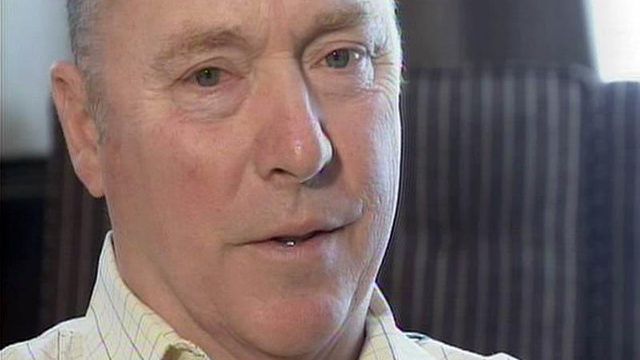Husband and father of murder victims wants to move on after court-martial
Last week, a panel of 14 Army officers and enlisted personnel sentenced Master Sgt. Timothy Hennis to die for the May 9, 1985, stabbing deaths of Kathryn Eastburn and two of her daughters, 5-year-old Kara and 3-year-old Erin, in their Summerhill Road home in Fayetteville.
Posted — UpdatedLast week, a panel of 14 Army officers and enlisted personnel sentenced Master Sgt. Timothy Hennis to die for the May 9, 1985, stabbing deaths of Kathryn Eastburn and two of her daughters, 5-year-old Kara and 3-year-old Erin, in their Summerhill Road home in Fayetteville.
The court-martial was Hennis' third trial for the crimes. He was convicted in state court in 1986 but won an appeal and was acquitted in a second trial three years later. He finished out his service in the Army and retired to Washington state.
Years later, DNA tests not available in the 1980s linked Hennis to sperm found on Kathryn Eastburn. Because Hennis couldn't be tried in state court again, the case was turned over to the Army to pursue a court-martial.
Gary Eastburn sat through the entire trial, and observing Hennis for six weeks filled him with anger.
"It started when I was up there and they showed pictures of my family, and I got really offended when he was looking at them. It really stuck in my craw. How dare you?" Eastburn said.
His anger reached a boiling point when a defense attorney tried to explain the sperm found on Kathryn Eastburn as evidence that she and Hennis had an affair. Hennis should have testified to that if it were true, he said.
"I think he was a coward," he said of Hennis. "I was like, if he's going to say something like that, he should have brought it forward in that way instead of back-dooring it through his lawyers."
Then he listened to testimony from Hennis' family and friends about how Hennis has been a good husband, father and soldier over the years.
"No matter what he's done now, that doesn't eradicate what he did to my wife and children," Eastburn said.
Throughout the trial, he said, he saw no emotion in Hennis' face.
"To do something like he did, he had to be a very emotionless person – a soulless person," he said.
The trial dredged up plenty of unpleasant memories and emotions, Eastburn said.
"I was surprised by the amount of emotion. I thought it had been a little bit tempered over the years," he said. "It hurt just as bad now as it did then."
Despite the guilty verdicts and death sentence, Eastburn said he still has questions about the events of a quarter century ago.
"What is it that would make a person do what he did, I mean, not just to murder them, but to mutilate them?" he asked.
• Credits
Copyright 2024 by Capitol Broadcasting Company. All rights reserved. This material may not be published, broadcast, rewritten or redistributed.






